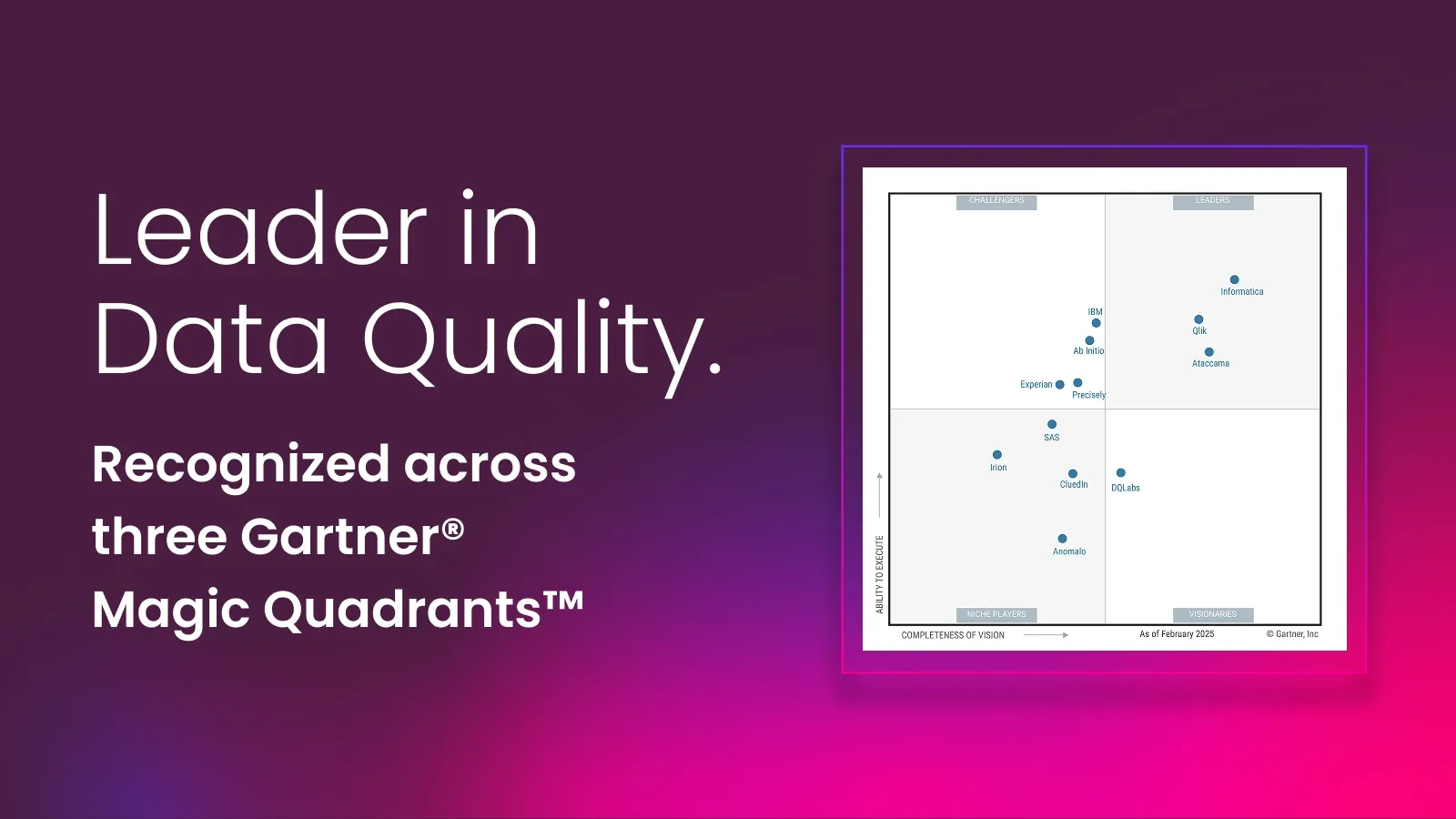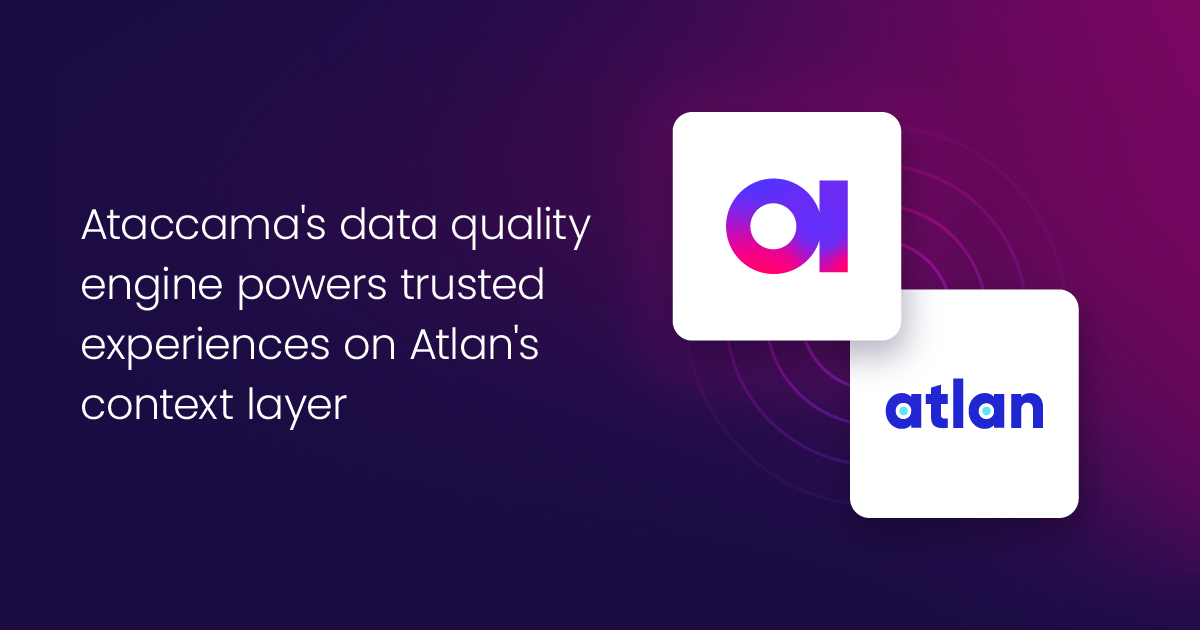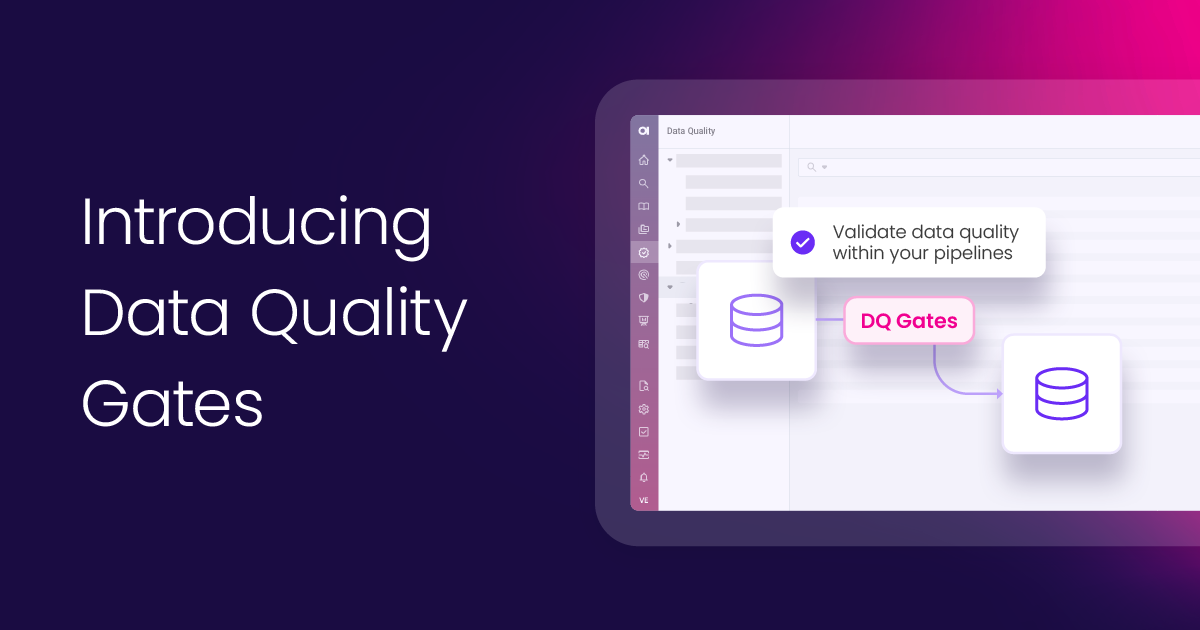What is Metadata Management and Why it is Essential to Business Success

Data democratization, data literacy, data intelligence, data fabric, data mesh… you’ve been bombarded with new and old buzzwords to get you thinking about modernizing your data programs, changing platforms, and moving to the cloud. Do you know what all of those have in common?
Metadata.
You need context to understand and fully leverage all the information available in your organization. Metadata can provide this context, giving you a better understanding of your data’s quality, relevance, and value.
Metadata is the most critical asset next to your data. It’s the secret sauce that makes data usable and valuable. With so many valuable insights metadata can provide, it’s no wonder the metadata management tools market is projected to grow at more than 20% a year and be worth $36.44 billion by 2030, according to Grand View Research.
In this article, we are exploring what metadata is and why it is important:
- What is metadata?
- What are the types of metadata?
- What is metadata management?
- Benefits of metadata management
- How is metadata management related to data governance?
- What challenges do organizations face without metadata management?
- What are essential metadata management capabilities and tools?
- What you should keep in mind when choosing the metadata management tool
- What you should keep in mind when choosing the metadata management tool
- Conclusion: metadata management is a low-hanging fruit
What is metadata?
A standard definition of metadata is “data that describes other data.” It’s a bit more complicated. Metadata is used extensively to sort through complex data sets and put them into a more manageable and understandable form. Metadata is excellent for sorting and simplifying essential data. However, it comes in different variants.
Here is a simple example to help you understand metadata. Imagine you have a music collection that you want to catalog. You want to capture four types of information: the name of the album, the name of the artist, the year it was released, and the type of music. This is business metadata.
If I want to know if the music is in MP3 or FLAC format, which is lossless, or if it’s DSD format. This would be technical metadata.
The third level shows where the music comes from, whether it’s a CD, Spotify, Vimeo, or some dodgy pirate website. Metadata around those things is called operational metadata.
Here is a more formal definition by Gartner:
What are the types of metadata?
Metadata is generated whenever data is ingested at a source, data is accessed by users, data is moved around an organization, data is integrated or augmented with other data from other sources, data is profiled, or data is cleaned and analyzed.
Metadata is valuable because it provides information about the attributes of data elements that can be used for strategic and operational decision-making. You can start your quest by leveraging three critical categories of metadata:
Business metadata describes data by mapping it to business terms, KPIs, data domains, reports, glossary terms, and more. This also includes references to source databases, contact persons, documents and storage locations, and associated information in other systems. All key figures and information required for certain business processes are stored in categorized form as part of metadata management. It helps provide context for business intelligence (BI) specialists.
Technical metadata includes data structures, types, and models such as physical database schemas, tables, and columns. These could be mappings, code, quality checks, runtime statistics, timestamps, volume metrics, or log information.
Operational metadata describes how data is processed and accessed when it comes to sharing, performance, maintenance, and archiving rules. Such metadata may include user ratings, comments, traffic patterns, governance processes, and system or location information. It’s all about the information about how data is used, who accesses it, and how often.
Once you expand your knowledge of the diverse metadata types, you can better organize and preserve your valuable data. Let’s briefly overview the benefits you gain when managing metadata consistently.
What is metadata management?
Based on these categories, metadata management aims to achieve the following goals:
- Collect: Metadata is collected across all enterprise systems, both in the cloud and on-premises, including databases and file systems, integration tools and processes, and reliable analytics and data science tools.
- Manage: The data view is documented with glossary terms, concepts, relationships, and processes. The collected metadata is ready to be used in the business context. Feedback from users is collected in the form of ratings, reviews, and certifications to assess how helpful the dataset is to other users.
- Discover: The discovery process of metadata should all be automated with AI-powered tools that can help establish relationships between data units and automatically build data lineage. Metadata stays updated with automated algorithms, AI, and user input.
Established metadata management determines the right source for the required data in the shortest possible time.
Good metadata management is the basis for business intelligence applications. It can be used to classify data, make it readily available, and evaluate and optimize processes. Here are just some of the use cases of metadata management:
- Self-service reporting and data democratization
- Supporting data science projects
- Implementing a report catalog
- Sensitive data management
- Terminology reconciliation
Benefits of metadata management
Metadata management is the core component to unlocking the true potential of enterprise data. Finding, ingesting, integrating, connecting, sharing, and analyzing metadata requires significant time, expense, and specialized technical resources.
However, the proper metadata management solution can help organizations make better decisions about driving revenue, achieving compliance, or meeting other strategic goals, among them:
- Alignment of business terminology through the use of a business glossary
- Establishing a single place to discover available data and reports
- Knowledge of available data assets and the ways they relate to each other
- Automation of privacy and compliance
- Self-service access to data
- Freeing up IT resources
“Metadata helps keep your data landscape tidy and clean. A strong case for metadata management is about compliance, regulations, and privacy,” says Luca de Ioanna, Data Governance Lead at Ataccama.
“The moment you make a mapping of your company policies, and you create them in the catalog, you show to which data objects they’re connected, you create a business impact analysis.”
Another important issue is documenting your data landscape to understand where you have sensitive (PII) data. When scanning data sources is automated and AI learns to recognize PII, your sensitive data management is pretty much on autopilot, the same as the whole metadata management system.
How is metadata management related to data governance?
There is a strong connection between metadata and data governance. In most organizations, governance involves telling the “story” of data and determining its relevance. No surprise that metadata answers the primary questions about the data – similar to journalism with its questions “who, what, when, where, why.”
“Data professionals want to understand the conceptual connection among different parts of the business,” Luca de Ioanna, Data Governance Lead at Ataccama. “They want to see how business elements are connected in terms of three things:
- The types of data the organization possesses.
- The people who are working with this data.
- What processes or activities are connecting those data?
This is the story about metadata management and supporting data governance.”
Metadata is data about data and defines a data object’s content. Data governance practices use metadata to enable specific policies and provide access to data. Such policies cover data definition, data use, security, lineage, and heritage.
The critical thing to remember is that governance and policies are intended to determine what level of action should be taken about a given data object; however, they must also apply to the actual storage of the data. It will help in both business and technical instantiations of the data, making it a potent tool in any data governance practice.
What challenges do organizations face without metadata management?
Businesses and IT need quality metadata that helps keep your data landscape organized and clean. An organization cannot drive the full value of its data without properly managed metadata. For example, without knowing which reports the organization has, the business intelligence unit may need to double-spend on required datasets. Organizations that fail to recognize the importance of metadata cannot answer these (and many other) questions:
- Which reports do we already have? Do we have to spend resources and recreate them again?
- What does the data represent, and where does it come from?
- How is data moved through systems?
- What kind of people have access to the data?
- What data activities are regulated by what regulations?
- What are the customer types and patterns?
The inability to align sales, marketing, and finance, as well as business intelligence and governance, are just some of the consequences of failing to manage metadata.
Your metadata must be machine-readable, which can only be accomplished if your metadata is appropriately managed. Let’s learn what helps make metadata management a success.
Let’s examine the most important metadata management capabilities you should expect to find in such tools.
What are essential metadata management capabilities and tools?
The data catalog is the most popular metadata management tool, a de facto standard. Modern data catalogs include tools and features for effective metadata management, such as the business glossary and data lineage. Let’s look at these and other features in more detail:
- A data catalog is an inventory of enterprise data assets, which lets the various users discover what data is available, thanks to the excellent organization of these assets and tagging. In the broader sense, it is a knowledge catalog where users can find everything from raw operational data to high-quality, ready-to-use data products, features for data science, or reports for business users. It is also where users can see relationships between various data assets and their quality and place them on the more expansive data ecosystem and pipelines.
- A business glossary is a metadata management tool that stores definitions of important business terms, KPIs, business dimensions, and other metadata. This metadata is then linked to specific data assets.
- Data lineage shows how the data flows within the data ecosystem. Users can see for every data asset which source system it originates from, to which systems it flows, and which other data assets are derived from it.
To learn more about data catalogs and the essential features of metadata management, see our article.
What you should keep in mind when choosing the metadata management tool
The following questions should be at the top of your list a choosing a tool for metadata management:
- How comprehensive are the options for automated metadata harvesting? Is data from both sources – data at rest and data in motion – included and from the data models? With organizations changing rapidly, automation and a robust library of data connectors are essential in your metadata management tool.
- Does the metadata management platform use AI for automation? AI can help automate data classification and sensitive data management. It is paramount for data-driven enterprises. AI also helps find relationships between data assets.
- What are the integration options with other tools and platforms? Just collecting and managing metadata is not enough. You should be using metadata to automate data quality management, or you might want to export to other platforms such as Snowflake to use its tagging feature.
- What collaboration options are available? Users should be able to comment on, rate, and share data assets with each other.
- What data protection features are available? A metadata management system—or a catalog—should be able to hide or mask data or metadata based on policies that apply to data assets.
- What are the options for data provided? Your data catalog can act as a data marketplace. Users should be able to request access to data or access it in a self-service way through automated policy enforcement.
The future of metadata management
There are several reasons for the growth of metadata importance in the overall organization’s data strategy. One of them is practical: Organizations do not want to get lost within millions or even billions of tables. Another reason is cost savings: enterprises view metadata as a way to use better the data they already possess, avoid double-spending on data assets that the organization may already have, and also as a way to better monetize their data.
In addition, expanding laws and regulations like SR-11, GDPR, and the California Privacy Rights Act (CPRA) requires organizations to manage data privacy, access, and control in an organized and efficient way. As a result, two significant trends are emerging.
Metadata management automation
We have established that metadata management is a critical element of modern data governance. With the growth of data collection and use, organizations should be thinking about automating metadata ingestion and maintenance, specifically:
- Data classification for compliance and sensitive data management. Organizations that collect customer data should stay on top of it and proactively protect it.
- Data quality management. Using metadata to automate data cleansing and monitoring is a game changer for many organizations because of the time savings it brings.
- Data observability. By continuously scanning data sources for schema changes and anomalies and profiling data, your metadata management system enables effortless observability of data pipelines and critical business systems.
Metadata is a cornerstone of data mesh and data fabric
Data ecosystems are becoming increasingly complex because of the variety of data management tools that organizations procure. It is essential that these tools work together and exchange data. Data fabric is the network that stitches together data from multiple sources and prepares it for delivery to different data consumers. To make it possible, the network is heavily dependent on metadata. Modernizing data management starts with data fabric architecture, according to Gartner.
There’s another emerging data management blueprint that heavily relies on metadata—data mesh. Three out of four pillars of the data mesh are hard to support without a good grasp of enterprise metadata.
Metadata is still only scratching the surface of what is possible today, even for organizations with a heavy data focus. Nevertheless, metadata has the potential to fundamentally change how we use data. This is made possible by the metadata lake as part of the enterprise data fabric. Metadata will likely become a fundamental component of data governance solutions, data catalogs, and other enterprise data systems shortly, unlocking the door to truly intelligent data management systems.
Conclusion: metadata management is a low-hanging fruit
How you use your metadata is limited only by your imagination, but one thing is clear: metadata management is low-hanging fruit. If you want to take your organization’s use of data to a new level, start by organizing your metadata.







